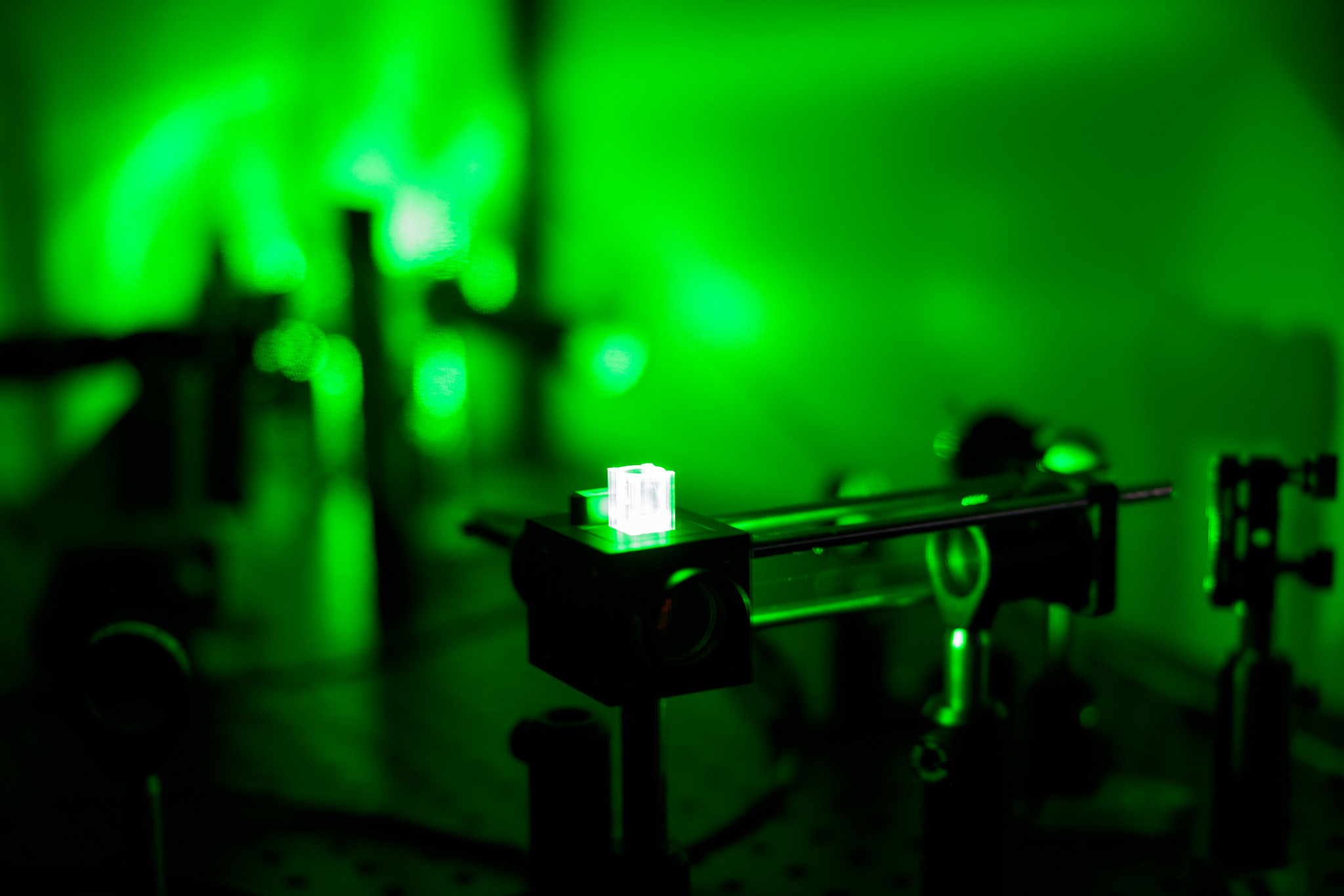Building Scientific Competency in University Education
Science Victoria Edition

By Dr Catriona Nguyen-Robertson and Dr Giulia Iacono,
Emerging Network Leaders in the Australian Academy of Technological Sciences and Engineering (ATSE) Education Forum
With an increasing number of global environmental and health challenges requiring innovative solutions to solve, Australia is going to need greater numbers of scientists, technologists, engineers, and mathematicians.
But Australia is in a STEM crisis. It has been for years.1
The low uptake of science and mathematics subjects by school students, and dwindling interest in STEM-related tertiary courses, has led to chronic shortages of skilled STEM professionals.1
It comes at a time when these subjects are playing greater roles in our lives, and economies. The Australian Universities Accord Report 2023 states that “Australia needs a more equitable and innovative higher education system” and that “significant changes are needed in Australian higher education” to equip Australians with the skills and knowledge needed to meet our current and emerging social, economic and environmental challenges.2
In light of the dire situation, what reforms are needed to build scientific competency at a tertiary level?

Fostering critical thinking
Completing a STEM-related university degree does not guarantee that graduates have all of the skills required to thrive in the workforce. There is increasing evidence suggesting that tertiary education does not provide students with the skills necessary to match the demand of current workplaces.3 Graduates may have perfected the art of following assessment rubrics or rote-learning for exams, but are generally found lacking in communication, problem-solving, and critical thinking skills.3
Critical thinking is the systematic process of analysing and evaluating information, in order to form well-reasoned conclusions and decisions. It is a core part of effective problem-solving, and is assisted by creative thinking to generate unique or innovative solutions.
It doesn’t help that students may not have solid foundational skills when they commence their tertiary studies. Unlike many other countries (including New Zealand, the USA, and China), Australia does not mandate the study of mathematics or science through to the end of secondary school. This means that fewer than 30% of Australian Year 12 students are currently studying intermediate or higher mathematics.4 More students are entering university, but lacking a sufficient foundation in STEM, and experience utilising critical thinking skills.
To better match current requirements of STEM work practice, students need to be challenged with course content and assessments that will encourage them to develop critical thinking and analytical skills. As one example, this could be achieved by designing assignments based on real-world scenarios and datasets, which hold all of the real-world complexities they will encounter in the workplace.

More emphasis needs to be placed on the value of critical thinking skills. The University of Queensland Critical Thinking Project, for example, assists teachers to embed critical and creative thinking within their classes.5 While this project mostly targets primary and secondary school, the positive outcomes for students are clear: over 90% of students participating in the “Effective Thinking and Writing” subject express greater confidence in their thinking and writing skills, and greater preparedness for their future studies.5 The University of Melbourne has also implemented “Discovery Subjects” across each undergraduate degree, which are not content-based, but instead encourage students to solve real-world problems and assess their process.
While STEM industry sectors certainly need to be more vocal about this skill shortage, it is the responsibility of universities to develop curricula in better alignment, and put more weight on merit and achievements that reflect the required skill sets (e.g., effective project management, leadership and collaboration, application of transferable skills across disciplines, and critical thinking to solve multifaceted problems). An example of this is the Graduate Research Industry Partnership (GRIP) program developed by Monash University, where PhD students undertake a government or industry-based research project aimed at solving current Victorian issues.6
Increase academic standards
Teaching academics can occasionally be caught between their role as educators, and their role as an employee of a money-making business. Lecturers and tutors are grappling with a tide of academic misconduct, and pressure from their superiors to award passing grades to poor-performing students, so that these fee-paying students continue to generate revenue for the university.

An investigation by ABC TV’s Four Corners program in 2015 unearthed alarming evidence of a decline in academic standards at institutions around the country.7 With universities depending on the income derived from international students, they tend to overlook the fact that many do not have the English proficiency needed to successfully undertake their studies.7
The question is: has anything changed since 2015?
With global university rankings being based primarily on research output and not on teaching quality, universities have less pressure to demonstrate educational outcomes. The Academic Ranking of World Universities – the first global ranking system – focuses its ranking on research excellence, favouring the natural sciences, research indicators, and emphasis on institutions that have been awarded Nobel Prizes, over teaching quality or graduate employability.8 The Times Higher Education World University Rankings emerged in 2010 to factor the quality of teaching and the learning environment, but it still places a high importance on citations when assessing a university.9
More emphasis needs to be placed on the quality of teaching and learning among global university rankings. This would force universities to adapt, in order to ensure that they remain highly ranked.
Moving away from “trial by fire”
Tertiary students are no strangers to psychological anxiety. A heavy workload, rising living costs (and therefore managing employment while studying), and familial separation all have an impact on emotional wellbeing. Many students find the jump between secondary and tertiary education both academically and emotionally challenging.
The rate of students completing their degree within six years hit a record low in 2022.10 In addition, Australian Tertiary Admission Rank (ATAR) scores that students receive upon completion of secondary studies are predictive of tertiary attrition: students with ATARs below 60 are twice as likely to drop out of university compared to students with ATARs above 90.10
Unsurprisingly, meaningful support for students makes a big difference. Several studies have observed that support from family, teachers, and the institution itself, is often one of the reasons why students regain their motivation and continue their studies, even when they have academic difficulties.11
Graduate students (pursuing Honours, Masters, or a PhD), who have only experienced the confines of lectures and practical classes, tend to be quickly thrown into the deep-end of academia. They are suddenly expected to deeply understand and critique the current literature, excel in their science communication skills, and publish their research in high-impact academic journals.
For many, this can be overwhelming.

A survey of over 2,000 students worldwide revealed that more than 40% of Masters and PhD students experience moderate to severe anxiety and symptoms of depression.12 If that wasn’t enough, more than 60% of full-time Australian students have to juggle their studies with working a second job to supplement their income, resulting in 30% of university students taking over 8 years to complete their degree.13
It is a challenging transition from being an undergraduate student, where rote-learning and cramming information before exams is often enough to succeed, to becoming a graduate student, expected to adapt quickly to research-based learning and the pressures of academia.
It is therefore encouraging that there has never been more help available to students. Universities now provide a wide range of resources and support systems to help students overcome a potentially stressful and isolating period. For example, the Monash University introductory academic program provides international students with all the writing, reading, and research skills needed to undertake an academic degree at an Australian university.14 For students already enrolled, the University of Melbourne has established the Honours Alumni Mentor Program, pairing Honours students within the Faculty of Medicine, Dentistry and Health Sciences with PhD candidates who have previously navigated the transition themselves.15
Connecting the disconnected teaching environment
Academics are generally required to divide their time between three main tasks: research, teaching, and community service. While teaching responsibilities depend on a person’s position – e.g., associate lecturers and lecturers are generally expected to spend more time instructing students – many academics juggle teaching multiple units in parallel with undertaking research.
Many academics are therefore expected to provide students with an annual lecture despite having very little teaching experience. They may not be up to speed with current teaching practices, and their lecture might not be consistent with the other content of the unit. For subjects taught by multiple lecturers, the incongruity between content and teaching styles can make the subject matter more challenging to learn.
Teaching involves more than simply delivering classes. It also involves the preparation of classes, administering and marking assessment tasks, and providing students with academic support and guidance throughout their course. Generally, academics are also expected to support the reputation of their host university by engaging in research and publishing their findings in reputable journals.
Specific teaching academic roles in Australian universities have risen, allowing for better separation of teaching and research.16,17 The rise of these teaching-only roles in Australia and other countries (including Canada, the UK, and the USA) is driven by the rapid growth of student numbers in higher education and research-focused university rankings. This is considered a win-win: researchers don’t have teaching commitments that take up their time, while teaching specialists can deliver streamlined courses and develop rapport with students across a semester.
STEM skills are crucial for Australia’s changing future. We need more STEM professionals to transform our energy grid, to advance our manufacturing sector, to make our agriculture and transport more sustainable, and to drive new discoveries and innovations. Our education system needs to support this growing need. While the STEM crisis is by no means an issue to only tackle at a tertiary education level, we need to ensure that we create teaching and learning environments at universities that support students to study STEM.
—
Dr Giulia Iacono is a Postdoctoral Researcher at the School of Translational Medicine at Monash University, and Dr Catriona Nguyen-Robertson is a Senior Tutor in the School of BioSciences at The University of Melbourne. They are the two Emerging Network Leaders in ATSE’s Education Forum.
References:
- Department of Education. (2022). Why is STEM important? education.gov.au/australian-curriculum/national-stem-education-resources-toolkit/introductory-material-what-stem/why-stem-important
- Department of Education. (2024). Australian Universities Accord: Summary of the Final Report. education.gov.au/australian-universities-accord/resources/australian-universities-accord-final-report-summary-report
- OECD. (2022). Does Higher Education Teach Students to Think Critically? Van Demme, D. & Zahner, D. (eds). OECD Publishing. oecd-ilibrary.org/education/does-higher-education-teach-students-to-think-critically_cc9fa6aa-en
- The Australian Mathematical Sciences Institute (AMSI). (2024, April 30). Year 12 Mathematics Participation Report Card: Mathematics Enrolments Remain at All-Time Lows. amsi.org.au/?publications=year-12-mathematics-participation-report-card-mathematics-enrolments-remain-at-all-time-lows
- The University of Queensland. Critical Thinking Project: Impact. critical-thinking.project.uq.edu.au/about/impact
- Monash Sustainable Development Institute. Graduate Research Industry Partnership (GRIP) program. monash.edu/msdi/study/graduate-research-program/engagement-opportunities/graduate-research-industry-partnership-grip-program
- Besser, L. (Reporter). (2015, April 20). Degrees of Deception. In Cronau, P. (Producer), Four Corners. ABC.Academic Ranking of World Universities (AWRU). en.wikipedia.org/wiki/Academic_Ranking_of_World_Universities
- Times Higher Education World University Rankings. en.wikipedia.org/wiki/Times_Higher_Education_World_University_Rankings
- Department of Education. (2023). Completion Rates - Cohort Analyses. education.gov.au/higher-education-statistics/completion-rates-cohort-analyses
- Lorenzo-Quiles, O., et al. (2023). Factors contributing to university dropout: a review. Frontiers in Education, 8. doi.org/10.3389/feduc.2023.1159864
- Evans, T. M.,et al. (2018). Evidence for a mental health crisis in graduate education. Nature Biotechnology, 36(3), 282–284. doi.org/10.1038/nbt.4089
- Cherastidtham, I., & Norton, A. (2019). University attrition: what helps and what hinders university completion? Grattan Institute. grattan.edu.au/wp-content/uploads/2018/04/University-attrition-background.pdf
- Monash College. Introductory academic program. monashcollege.edu.au/study/courses/english/introductory-academic-program
- The University of Melbourne. Honours Alumni Mentor Program. Faculty of Medicine, Dentistry and Health Sciences. mdhs.unimelb.edu.au/study/current-students/student-enrichment/honours-alumni-mentor-program
- Rogers, B., & Swain, K. (2021). Teaching academics in higher education: resisting teaching at the expense of research. The Australian Educational Researcher. doi.org/10.1007/s13384-021-00465-5
- Bennett, D., et al. (2017, March 28). Teaching-only roles could mark the end of your academic career. The Conversation. theconversation.com/teaching-only-roles-could-mark-the-end-of-your-academic-career-74826
Discover how you can join the society
Join The Royal Society of Victoria. From expert panels to unique events, we're your go-to for scientific engagement. Let's create something amazing.















